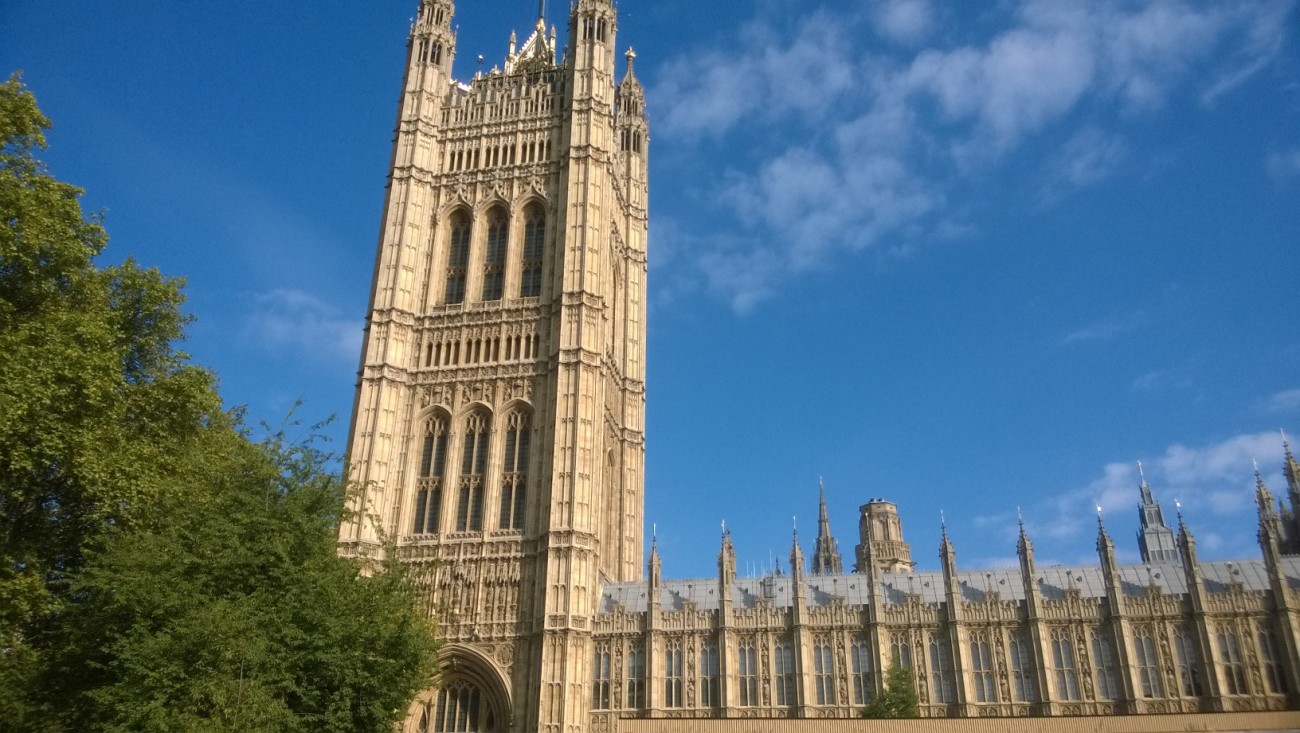 Top stories in this Fracking Week in Politics:
Top stories in this Fracking Week in Politics:
- Caroline Lucas pushes for answers on unpublished report on shale gas and climate change
- Rebecca Long-Bailey accuses government of “stripping away” fracking safeguards
- Lord Grantchester describes fracking as an “unproven” technology
- Viscount Younger encourages investment in shale gas
- Lord Brooke says pro-fracking lobby has “sizeable budget and many well-connected political insiders” on its payroll
Thanks to TheyWorkForYou.com for the transcripts.
Questions on the Committee on Climate Change report on shale gas
27 June 2016
 Question by Caroline Lucas Green, Brighton, Pavilion
Question by Caroline Lucas Green, Brighton, Pavilion
To ask the Secretary of State for Energy and Climate Change, pursuant to the Answer of 23 May 2016 to Question 39080, if she will make it her policy to lay the Committee on Climate Change report on the compatibility of UK onshore petroleum with meeting UK carbon budgets and the Government’s response before Parliament prior to any decision is taken to reverse (a) the planning decision against fracking made by Lancashire County Council and (b) any other planning decisions that are made by local authorities concerning the extraction of shale gas.
 Reply by Andrea Leadsom, Energy and Climate Change Minister, Conservative, South Northamptonshire
Reply by Andrea Leadsom, Energy and Climate Change Minister, Conservative, South Northamptonshire
Further to the Answer to Question 39080, we are continuing to consider the report and will lay it before Parliament with our response in due course.
29 June 2016
Question by Caroline Lucas
To ask the Secretary of State for Communities and Local Government, if he will wait until the Committee on Climate Change report on the compatibility of UK onshore petroleum with meeting UK carbon budgets and the Government’s response is published before taking any decision to reverse (a) the planning decision against fracking made by Lancashire County Council and (b) any other planning decisions that are made by local authorities concerning the extraction of shale gas.
 Reply by James Wharton, Communities and Local Government Minister, Conservative Stockton South
Reply by James Wharton, Communities and Local Government Minister, Conservative Stockton South
Secretary of State planning casework decisions are taken on the basis of the material considerations before the Secretary of State.
House of Commons debate on the Finance Bill: abolition of exemption for electricity from renewable sources
27 June 2016
 Extract of speech by Rebecca Long-Bailey, Shadow Chief Secretary to the Treasury, Labour, Salford and Eccles
Extract of speech by Rebecca Long-Bailey, Shadow Chief Secretary to the Treasury, Labour, Salford and Eccles
A £1 billion fund to invest in carbon capture and storage technology has been scrapped, breaking a manifesto pledge. The Government have stripped away safeguards to reduce the environmental risks of fracking and they have green-lighted fracking under national parks. Finally, the Government have still not committed to maintaining for the long term a reduced rate of VAT on solar panels, wind turbines and water turbines, an amendment on which we will discuss another day.
Time and time again, the Government pay lip service to the world’s appetite for better climate change policy, but they will not commit to any substantive action in Whitehall. That is not good enough. We need radical thinking if we are to achieve radical change.
Renewable energy debate House of Lords
28 June 2016
 Extract of speech by Lord Grantchester, shadow spokesperson on Energy and Climate Change
Extract of speech by Lord Grantchester, shadow spokesperson on Energy and Climate Change
They are to be congratulated on plans to phase out unabated coal by 2025, but they are sending out horrible mixed messages and non sequiturs. Yes, it is recognised that the cost of the levy control framework is rising from its present total of more than £5 billion to perhaps more than £10 billion in 2020, but the lack of transparency over government evidence for their argument that this amounts to overspending on renewables is undermining their credibility. On the one hand the Government are understandably aware of the cost of energy on household bills, but on the other they are picking technologies such as shale gas and CCS, which are unproven, and new nuclear and offshore wind, which are substantially more expensive. Investors cannot understand what the Government are trying to achieve.
 Extract of speech by Viscount Younger of Leckie, Conservative
Extract of speech by Viscount Younger of Leckie, Conservative
For a secure supply we need a smooth transition to a diverse mix of low-carbon technologies. The shift from unabated coal to gas is critical: gas produces half the carbon emissions of coal when used for power generation. As we have said, we will shortly launch a consultation on when to close all unabated coal-fired power stations, but we are deliberately not rushing in. We will proceed only if we are confident that the shift to new gas can be achieved in time, so we have announced key changes to the capacity market that will send the right signals to investors and ensure that new gas plants are built. Alongside this, with a strong regulatory framework already in place, we are encouraging investment to explore our shale gas potential so that we can add new sources of home-grown supply to our well-established imports.
Debate on public institutions, House of Lords
30 June 2016
Extract of speech by Lord Brooke of Alverthorpe, Labour
[Giving notice of a Private Members Bill to be introduced to amend legislation on lobbying, transparency and openness]
Why does lobbying and transparency matter? Lobbying is an estimated £2 billion industry in the UK, and most of this money is spent by big business. As profit-making entities, it is entirely rational for companies to lobby, whether against a threat to their business from government—the sugar tax is a very good example of that—or because government is providing an opportunity for profit, such as the opening up of the £110 billion NHS budget, which is a big opportunity for business.
There is nothing inherently wrong with that, and companies should be allowed to seek to be heard by the Government, but those of us who participate in Parliament and the public at large should be allowed to know just who is being approached, what is being said and what influence is being brought to bear. The present legislation in this country does not permit that, and as a consequence much is happening that we should know about but do not know about.
Take the lobby for the alcohol industry, of which I have some knowledge. It enjoys enormous influence in government, in large part a consequence of the significant resources that it devotes to lobbying, which far outstrips those of the public health advocates—of which, I openly declare, I am one. The lobby in favour of fracking is another with a sizeable budget and many well-connected political insiders on its payroll, resources that community and environmental groups opposed to fracking cannot match in any way. These are the kind of issues that we should seek to open to wider debate.
Categories: Politics

It seems perhaps a wind less favourable to fracking is blowing through Westminster? Interesting.
Just the usual, nothing new here / no change – what do you expect Caroline Lucas to say? Three things going against renewables – of course, their inability to supply electricity as base load and demand load, leaving the EU, and cost. Leaving the EU also potentially means Scotland goes – along with all it’s wind turbines. Interesting scenario for an independent Scotland as they will only have enough electricity when it is windy. Unless they import gas / nuclear from England or start quickly building their own gas power stations.
its seems like its all sown up fracking here we come !!!!!! what a disgrace
I don’t always see things so black and white or as pessimistic as some – there appears to be a definite leaning for more transparency over decisions and lobbying. Which I see as a positive with regard to the decisions taken on energy policy.
And I’m sure Scotland if it does leave the UK, and I hope it does not, will not be without power. The remaining gas and oil, plus the power they generate from renewables will no doubt be sufficient to bridge them to a solution – don’t forget they only have a population similar in size to Yorkshire. I think the Scott’s will negotiate a very tough deal in respect of any oil and gas that is in Scottish territorial waters and no doubt the nuclear submarine base will be a huge bargaining tool. Matters are seldom straightforward.
They are closing Longannet Coal, so no more coal aka England. They have Peterhead (old gas), Cockenzie (CCGT), Hunterston B nuclear and Torness Nuclear (I think these are still running although there are crack issues). They also have small amount of hydro and stored hydro but not much solar due to latitude. If it is not windy (high pressure, winter’s evening) can they provide their peak load without imports from England? Looking at the charts it doesn’t look possible. If it is then they (we) have wasted a lot of money on wind farms.
Their North Sea Gas and Oil are not much use if they don’t have the generating capacity to burn it in.
We will move the nuke sub base to England, there are two places which would like it. Scotland is after all against renewing Trident and or any other nuke weapons.
It appears that there is little discussion about REDUCING energy use,by improving efficiency in homes through better insulation,double glazing and efficient boilers and LED lighting. Many homes are so inefficient they require vast cost to heat them. Usually these home belong to the least able to pay. Offices, factories all need to be more energy efficient as does street lighting,helped by non-polluting solar farms. Are we going to produce energy only to see it wasted through inefficient housing and infrastructure?
I predict that in the future people will look at this generation and see how so much energy was wasted. The amount of work created by the introduction of energy saving, could create hundreds of thousands of worthwhile jobs whilst reducing the need for expensive and polluting energy production.
We need to be hearing more about the One Million Climate Jobs campaign
http://www.climate-change-jobs.org/about
.
There are already 1 million working for the IPCC and the rest of the doom and gloom forecasters at UEA etc.
What we need to be doing is adapting to, and learning to live with, climate change (which is nothing new). And we need to figure out how to stop the global population increase.
We could demolish all the 19th century properties and build nice, new modern energy efficient Huf Houses to passivhaus standards. But we won’t – prohibitively expensive.
All parties manifestos talk about better insulation standards, green energy etc. for new builds, but post election the builders lobbying always waters these promises down.
The PINs Inspector’s report on the Cuadrilla Appeals has been submitted to the SOS today as planned.
See the Bespoke Programme updated today to reflect this on the PINS website:
https://acp.planninginspectorate.gov.uk/ViewCase.aspx?Caseid=3130923&CoID=0
The document appears to have been updated this afternoon by Mark Boulton.
So now we have to wait until 6th October – or sooner….?
Summer recess starts 21 July Paul, I would have thought the SoS would have wanted it off his desk before then but who knows.